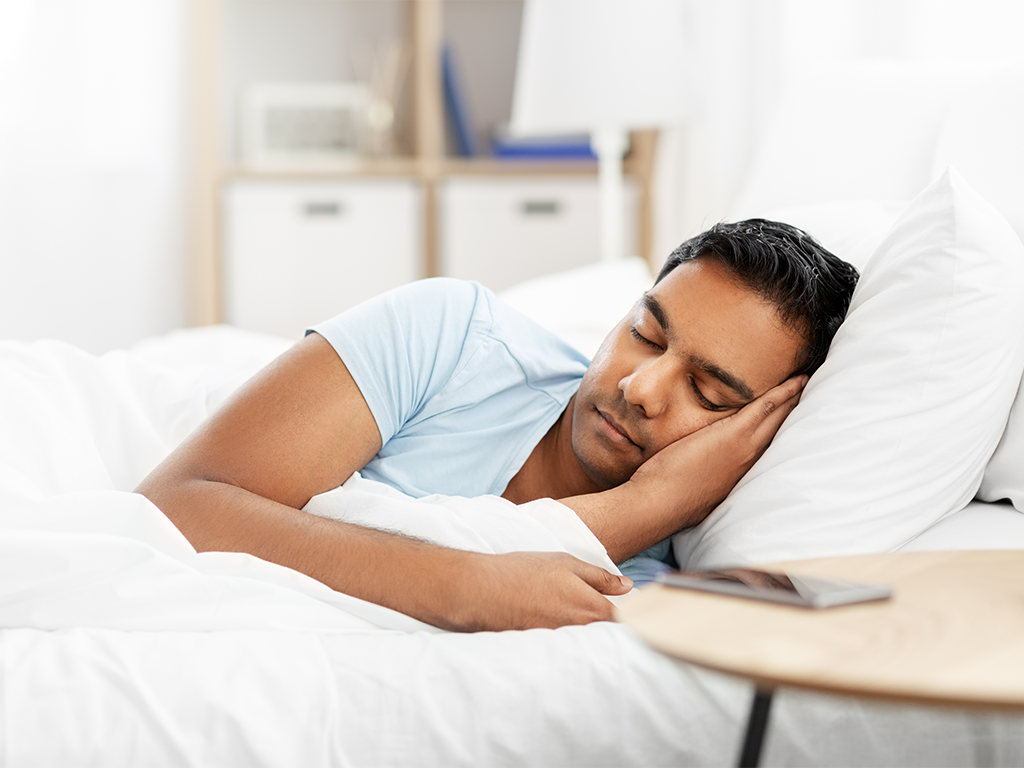
Understanding Sleep Problems
What are sleep problems?
Sleep problems are much commoner medical problems than usually thought of and are of various types. It can entirely be normal to have sleep problems for short term and is almost seen in everyone. 30 to 40% of people suffer from sleep problems for several days in a month.
Person suffering from sleep problems usually complain of one or more of the following
Inability to sleep or lack of sleep usually referred to as Insomnia
Difficulties and delays in falling asleep, frequent awakening (with or without difficulties in getting back to sleep), early morning wakening and feeling non-refreshed in the mornings are usual symptoms of Insomnia.
Excessive sleepiness, particularly during daytime or Hypersomnia
This can range from just feeling groggy and drowsy to falling asleep almost all the time. This sometimes is associated with other complex symptoms like sudden weakness following an emotional outburst, abnormal perceptions / sensations when falling asleep, automatic abnormal behaviour, inability to physically wake up from sleep etc.
Abnormal activity, behaviour, or experience during sleep
Snoring, breathing difficulties, sleep talking, sleep walking, dreams amounting to nightmares or night terrors, feelings of restless legs and grinding of teeth are some of the common problems that can occur during sleep. Several other complex behavioural phenomena’s have also been described and reported occurring during sleep, sometimes resulting in harm to the individual or others.
How does poor sleep affect you?
Sleep problems can result in mild discomfort feelings to dangerous consequences. Some of the negative impact of sleep related problems are listed below.
- Disturbances in mood, energy levels
- Irritability, reduced attention / concentration / memory
- Impaired higher mental functions like planning, sequencing, and executing
- Increased risks for heart disease, hypertension, diabetes etc
- Dangerous consequences related to driving and people working with heavy machinery / dangerous substances
- Impaired day time academic, occupational, and social functioning
- Inability to carry out day-to-day activities
- Relationship issues
- Weaker immune system
- Worsening of pre-existing medical and psychiatric conditions
What causes sleep problems?
There are several reasons why someone experiences sleep problems. Some of the causes are listed below.
- Not having good sleep routine like going to bed too early or too late
- Uncomfortable bed, noisy surroundings, too cold or too warm room temperature and too much light
- Night shifts, jet lags, frequent change of work patterns and change of sleeping place etc.
- Physical pain, snoring or breathing difficulties during sleep and other medical problems related to thyroid, diabetes, hypertension, Parkinson’s disease etc
- Suffering from psychological problems like depression, anxiety, phobias etc
- Developing abnormal psychological feelings in relation to sleep like anticipatory anxiety about inability to sleep, fear of dreams etc
- Excessive use of coffee, tea, cigarettes, alcohol, stimulant drugs
- Unhealthy eating habits like having late dinners and excessive use of fatty food
- Some of the medication can give rise to sleep problems
- Occasionally sleep problems can run in families
How to help yourself with a good night’s sleep?
It is important to identify the cause of your sleep problems. Most of the short-term sleep problems are relieved by just practicing good sleep hygiene tips (as below). However, it may be necessary to get your sleep problems assessed by specialists to rule out any complex causes and to receive appropriate treatment. This is particularly important if the sleep problems become prolonged or worsen over time or you notice that it is affecting your mental state, physical health, work life, relationships etc.
- For short term and uncomplicated sleep problems, it is important to try different things and find what works best for you
- Practice good routine of going to bed and waking up at the same time everyday
- Undertake regular exercises, but not just before sleep
- Relaxation or meditation before going to bed
- Avoid large portion meals too close to bedtime
- Avoid stimulating activities like watching TV, playing with smart phones and tablets in the bed
- Avoid use of excessive caffeine, alcohol nicotine use
- Avoid daytime naps
- Get your medical conditions / medication regularly reviewed by your doctors
- Seek help for your stress and ruminating unhelpful thoughts
- Make sure your environment is comfortable with a firm bed without any disturbing noise or light and maintain comfortable temperature with proper clothing and use of equipment’s
- Don’t try too hard. If you are struggling to sleep, sit on a chair and try to read until you feel a bit tired
What are the treatment approaches for sleep disorders?
Depending on the nature, extent, severity and duration of the problem, several treatment approaches are used by the specialists. It may be necessary to carry out some tests to determine the exact cause before treatment is decided. Some of the tests include completion of simple questionnaires and / or maintaining sleep diary. In some instances, sleep studies are performed which may involve overnight assessment of sleep using numerous parameters and monitors. Some of the treatments are listed below.
- Treating the cause like breathing problems, chronic pain, depression etc
- Treatment of alcohol / nicotine dependence
- Specific treatment with medication
- Psychological approaches like Cognitive Behavioural Therapy (CBT)
- Lifestyle modification including weight loss
- Specialist treatments like chronotherapy and phototherapy
Oxygen, use of splints and surgical procedures if related to obstruction of airway and breathing problems.


Social Media Sharing